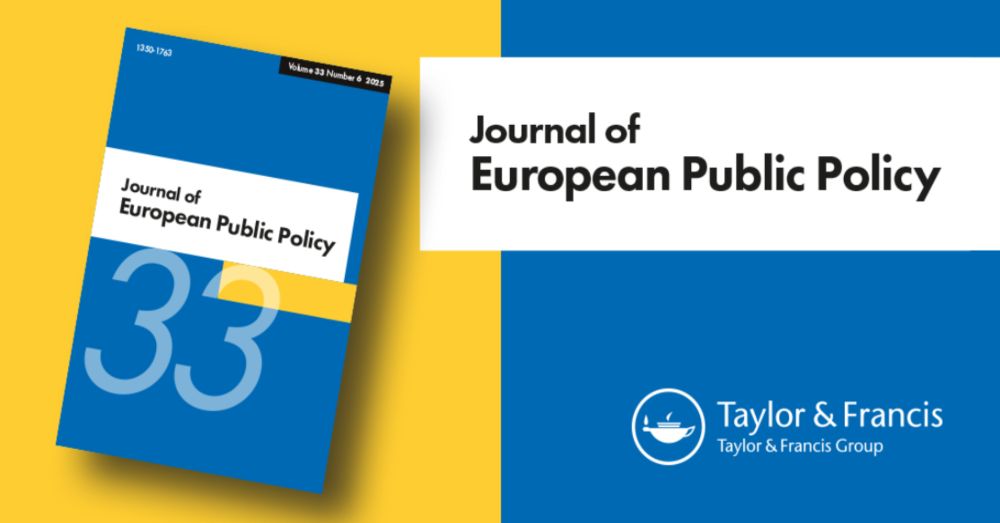
Evidence 🧪 vs. emotions❤️?
@dovilerimkute.bsky.social formulates a research agenda on how emotions shape citizen–regulator interactions 👇
@dovilerimkute.bsky.social
Associate professor at VU Amsterdam | 2022-23 Jean-Monnet fellow at EUI | NWO VENI 2019, VIDI 2024 | Research on regulatory governance, bureaucratic legitimacy and reputation, emotions in bureaucratic politics

Evidence 🧪 vs. emotions❤️?
@dovilerimkute.bsky.social formulates a research agenda on how emotions shape citizen–regulator interactions 👇
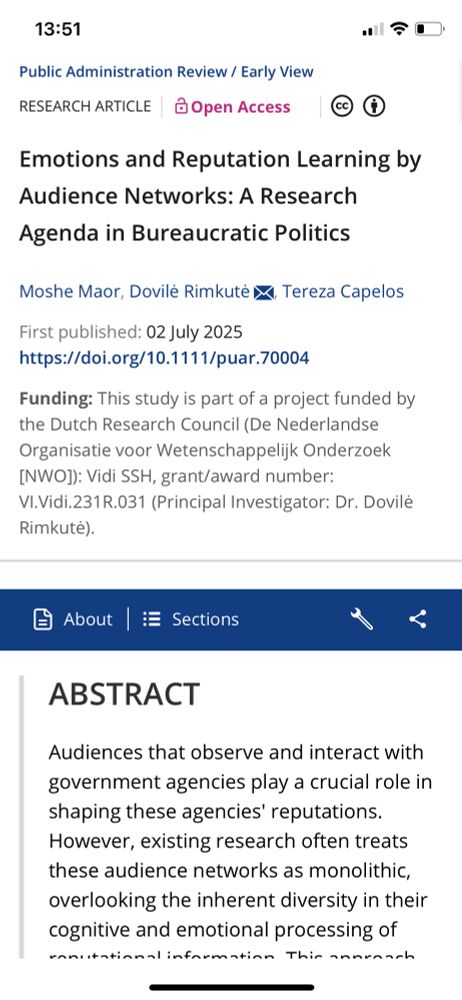
New publication in Public Administration Review (PAR)
We are delighted to share our interdisciplinary collaboration, co-authored by Moshe Maor, Dovilė Rimkutė,Tereza Capelos:
"Emotions and Reputation Learning by Audience Networks: A Research Agenda in Bureaucratic Politics"
📄 lnkd.in/eyHTeVAb
Our analysis shows that the ECB's reputation management during widening climate interventions involves three frames: prudence, promotion, and strategic ambiguity. Using these, the ECB practices reputational pragmatism to navigate diverse expectations, conflicting priorities, and mitigate risks
05.06.2024 07:04 — 👍 0 🔁 0 💬 0 📌 0We draw on bureaucratic reputation theory to examine the climate engagement of the ECB.Utilising a three-fold frame analysis, we examine the ECB’s communication about its green agenda, complemented by interview data from stakeholders.
05.06.2024 07:04 — 👍 0 🔁 0 💬 1 📌 0Amidst climate change, central banks' roles have broadened through widening interventions, offering new prospects but also reputational risks. Understanding how these risks shape banks' behaviour—preserving existing reputations, fostering new ones, or integrating both—is still lacking.
.
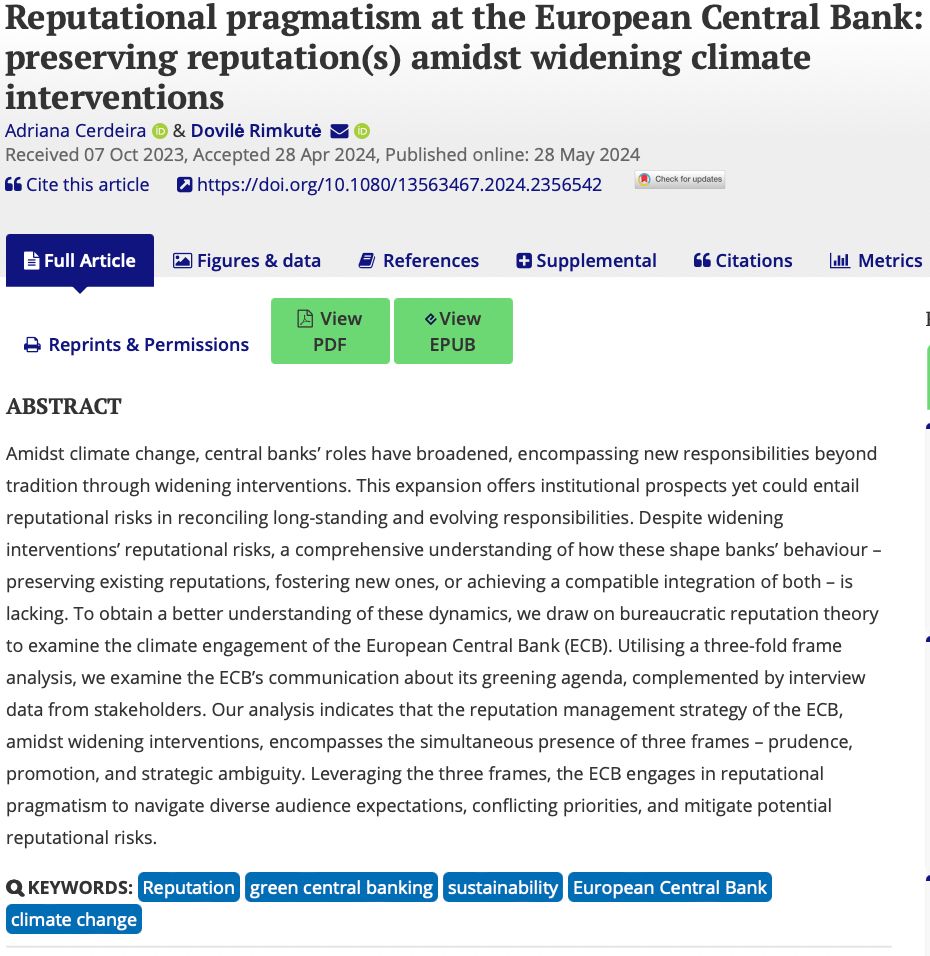
Check out our new publication with Adriana Cerdeira, 'Reputational Pragmatism at the European Central Bank,' in New Political Economy: www.tandfonline.com/doi/full/10....
#RegulatoryGovernance #Reputation #GreenCentralBanking #sustainability #ECB #ClimateChange
Today at 15:00 Benjamin Leidorf-Tidå is defending his PhD “Taking Centre Stage: Understanding How EU Account-Holders Enact Their Accountability Roles”.
Watch livestream: www.universiteitleiden.nl/agenda/2024/...
@mbusuioc.bsky.social
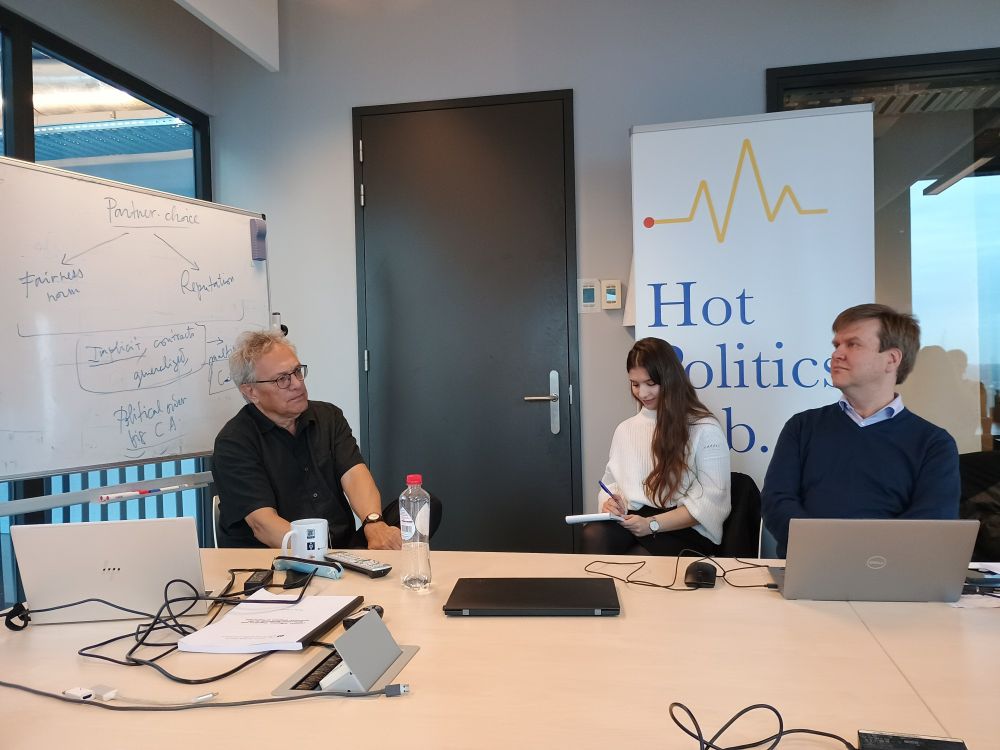


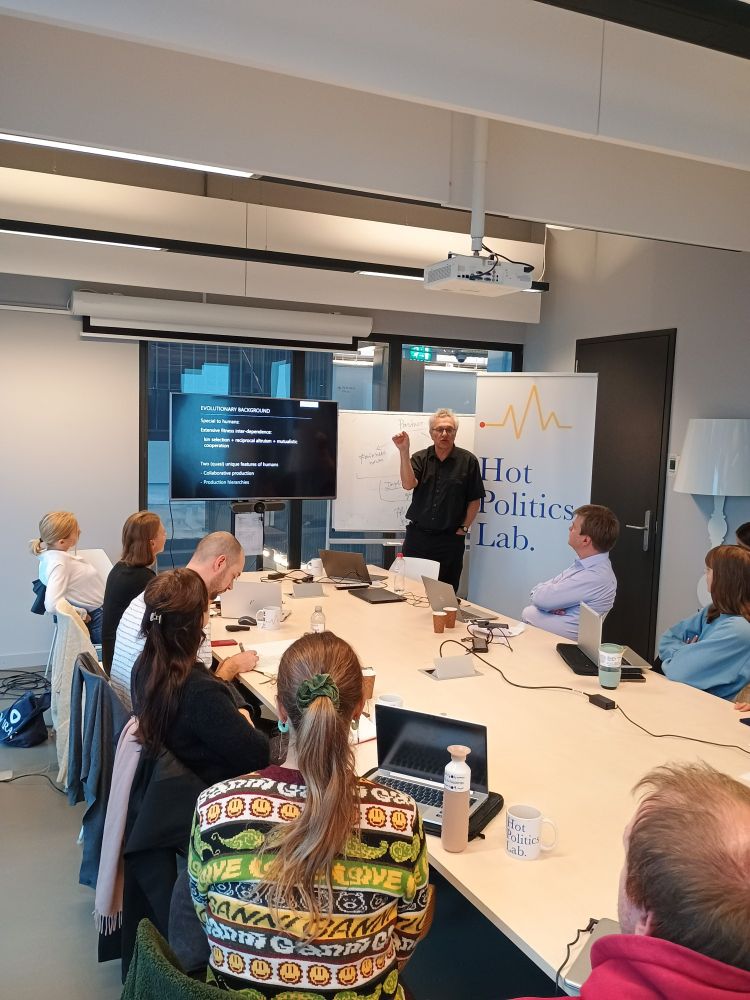
Big thanks to our wonderful speakers
@dovilerimkute.bsky.social @boralexander.bsky.social @PascalBoyerUSA & Magnus Feldmann + great workshop participants @hotpoliticslab.bsky.social This was an inspiring autumn "season finale" @gijsschumacher.bsky.social @mrooduijn.bsky.social @bnbakker.bsky.social
Exciting news! 🎉 Our @ecpr.bsky.social section on the Politics of Bureaucracy has been accepted for #ecprgc24!
📅 Submit your paper proposals by January 18. Details and tentative panel descriptions here: ecpr.eu/Events/Event...
📍 Reach out to panel or section chairs for any inquiries!
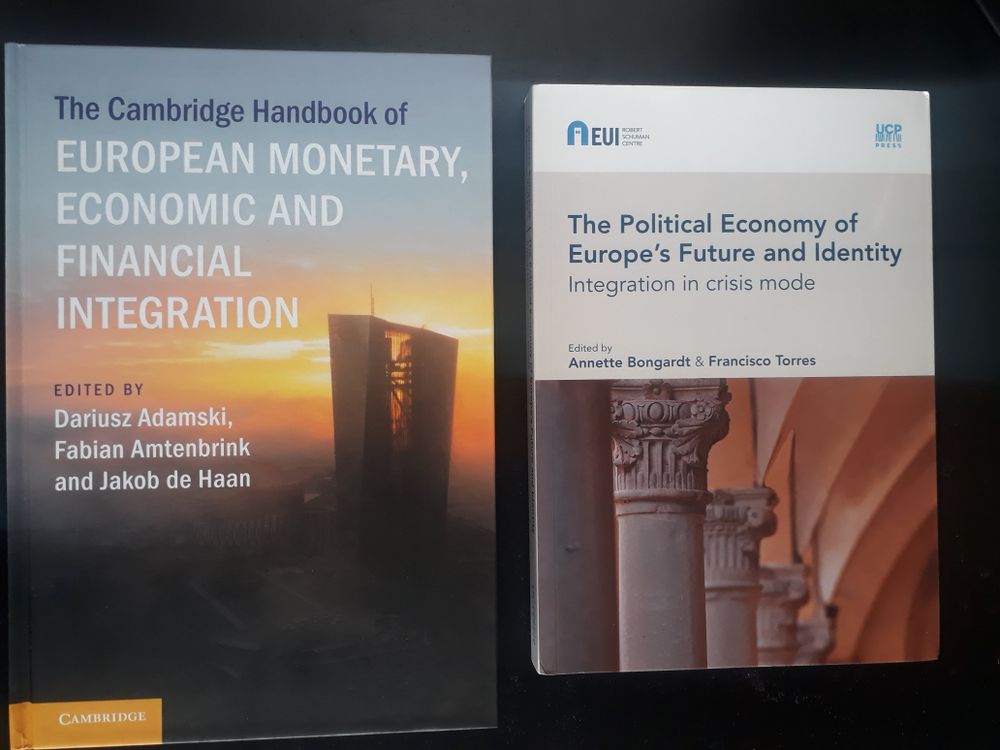
Happy to share (now also on here!) that two chapters of mine have appeared in wonderful edited volumes recently 📚
Very grateful—esp. to the editors—to see both alongside a great cast of E(M)U scholars 🙏
#OpenAccess soon, courtesy of Leiden University
You get two for one in this short 🧵
1/
The study is supported by two research projects by the Dutch National Science Foundation:
- VI.Veni.191R.078. (Principal Investigator: @dovilerimkute.bsky.social )
- VI.Vidi.201.128 (Principal Investigator: @jorisvandervoet.bsky.social )
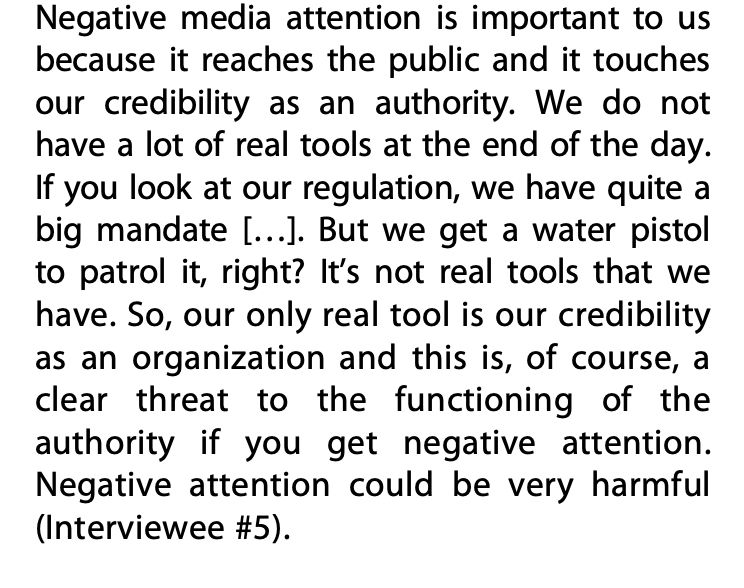
(5) Our interviewees explain that these patters are strongly driven by reputational considerations.
In particular, accusations of technical misconduct threaten the core of EU agencies' credibility and authority.
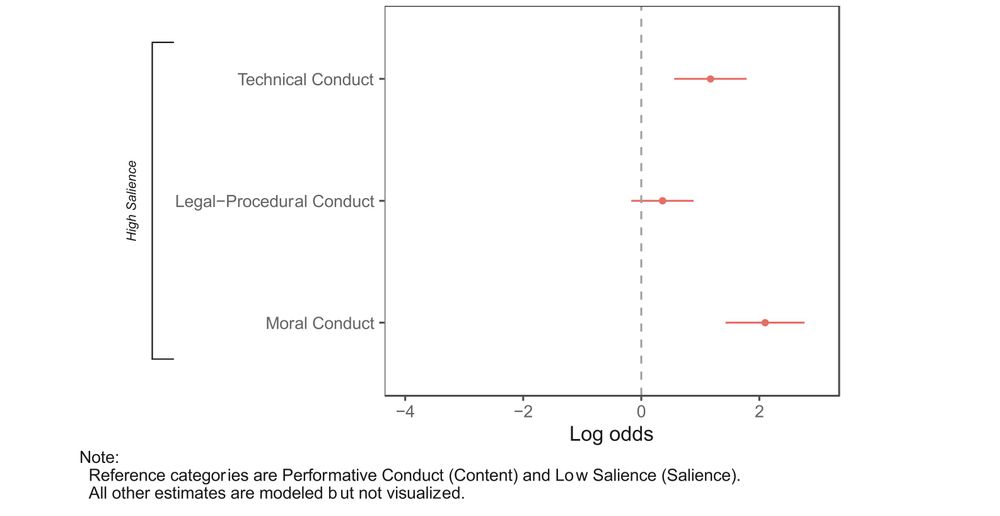
(4) Media salience has a direct and strong positive effect on bureaucratic responsiveness.
We provide new insight by showing that negative media attention in particular strengthens responsiveness to demands about technical and moral organizational conduct.
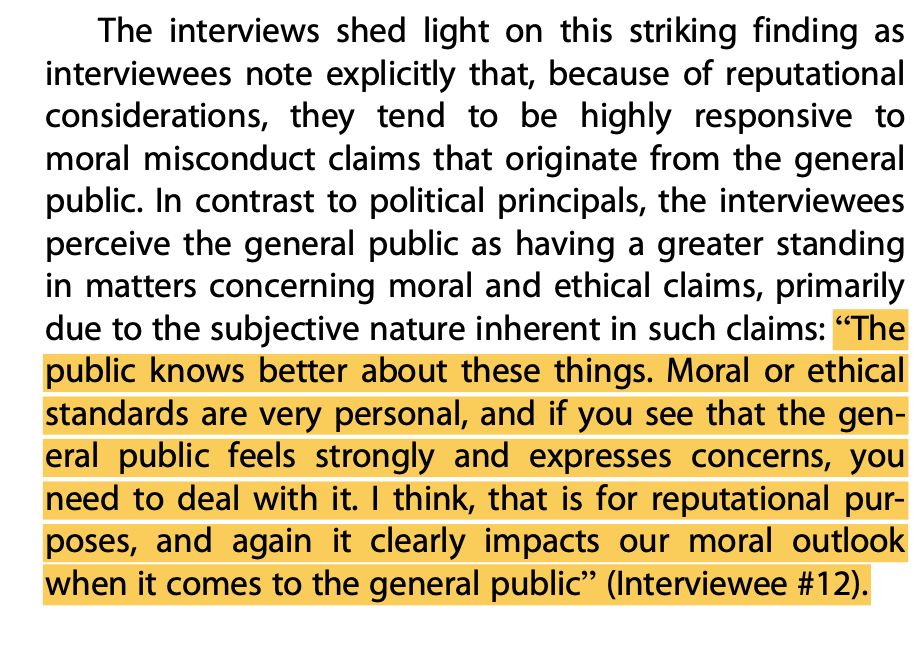
(3) Relative to demands about moral (mis)conduct by political principals, citizens' moral demands evoke higher bureaucratic responsiveness.
In the words of one respondent:
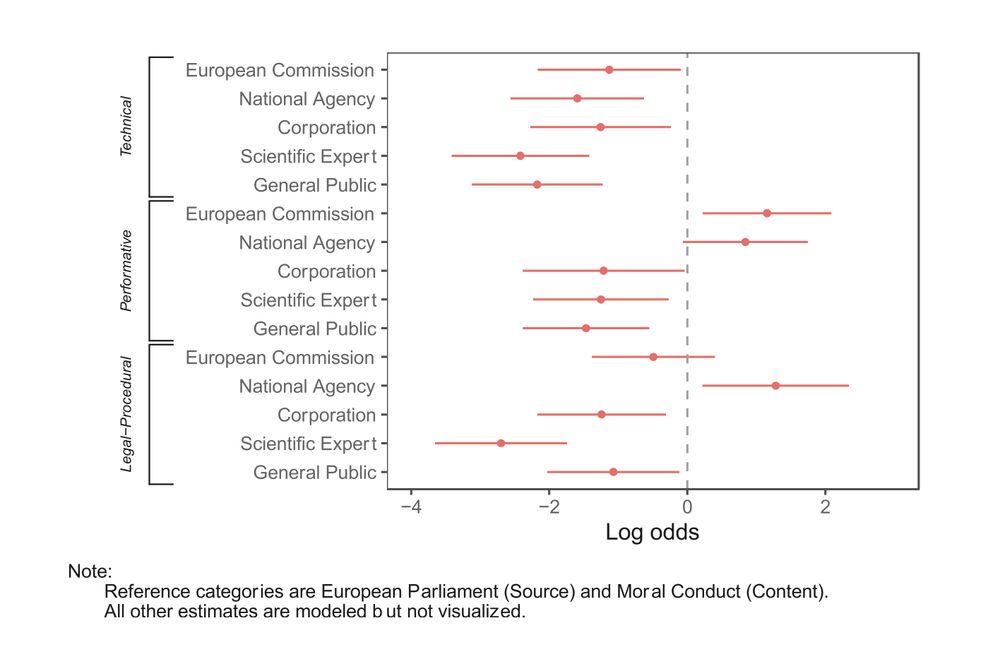
(2) Our analysis reveals that particular stakeholders can most forcefully voice demands concerning specific aspects of agency conduct, in particular:
- Technical demands by the Parliament
- Performative demands by the Commission
- Legal demands by national agencies
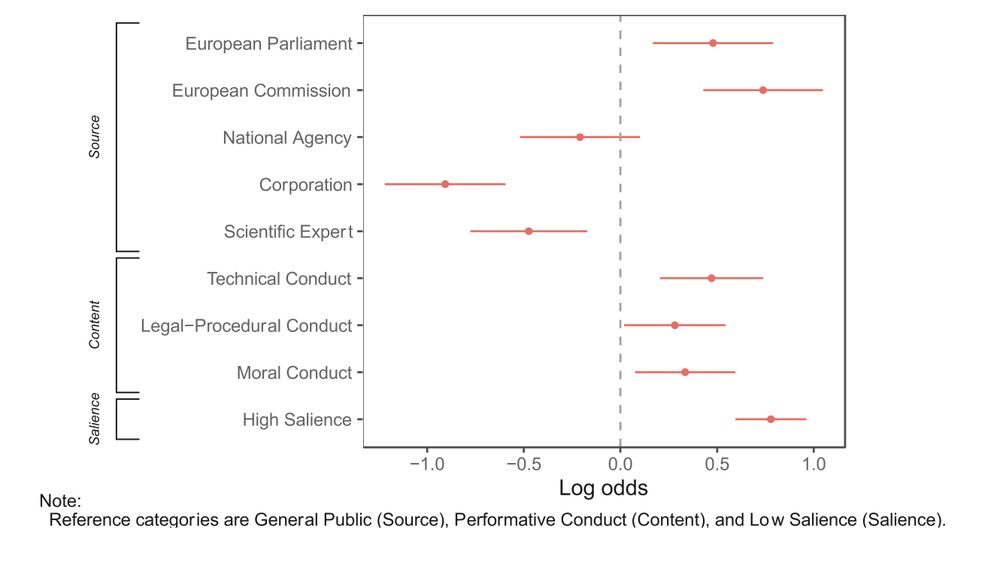
Findings:
(1) We find that bureaucrats are most responsive to demands exercised by their political principals (the European Parliament and the European Commission), as well as to demands that receive adverse media attention.
We use Discrete Choice Experiments to establish causal effects of demands' characteristics on bureaucratic responsiveness, and rely on interviews to inform the theoretical mechanisms that drive these effects. We leverage a sample of top-level bureaucrats at EU agencies.
21.11.2023 09:28 — 👍 0 🔁 0 💬 1 📌 0Integrating theories of political control and bureaucratic reputation, we argue that responsiveness depends on demands'
- Source: which stakeholder exercises the demand?
- Content: which aspect of agency conduct is addressed?
- Salience: is adverse media attention present?
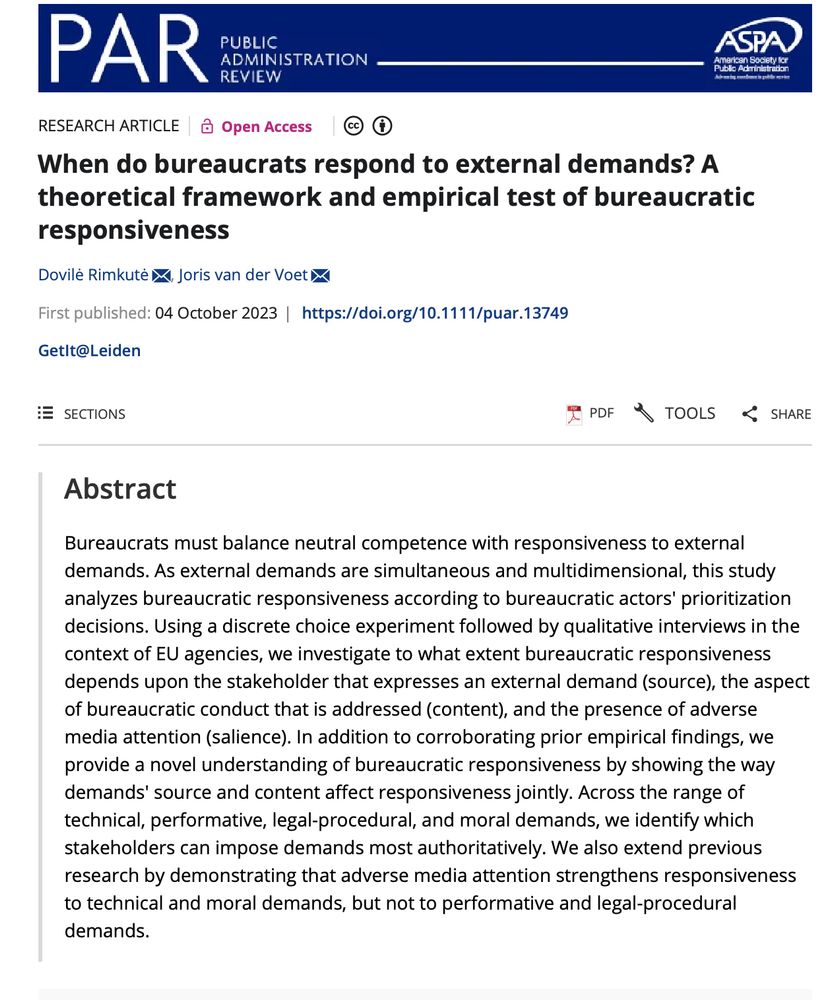
New study in PAR on Bureaucratic Responsiveness (with @jorisvandervoet.bsky.social)
When do bureaucrats respond to external demands? We theorize and test how bureaucrats prioritize between simultaneous stakeholder demands.
For more information see:
onlinelibrary.wiley.com/doi/10.1111/...

Once-in-a-blue-moon job opportunity at @ascor.bsky.social University of Amsterdam - full prof position in political communication !
vacatures.uva.nl/UvA/job/Full...
DL 5 December
Please share widely for diversity!
Come work @dovilerimkute.bsky.social, Caelesta Braun and me! PhD Position at the Institute of Public Admin, Leiden University on interest representation and political attitudes. Inspiring + friendly working environment, opportunity + resources to develop research. Deadline 10/11 tinyurl.com/mrbeps77
10.10.2023 11:31 — 👍 19 🔁 19 💬 0 📌 5